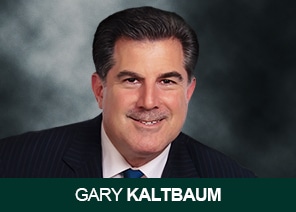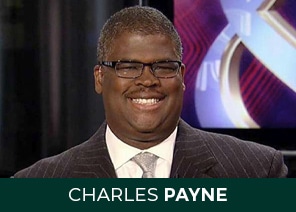By Steve Jurich, AIF®

When investing for retirement, you’re likely to hear a lot of well-meaning guidance from family, friends, and others.
As you weigh the potential benefits of well meaning advice from non-professionals, or you review commonly cited investment rules, consider that most are designed for the average situation– which means they may be wrong as often as they’re right. THAT’s the definition of average.
It can be easy to get caught up in fear-based headlines that constantly focus on attention-grabbing topics. But there are important factors impacting decisions you may be making right now—that deserve your attention.

Yes, we have seen crazy events the past few years. These events have taught alert investors an important lesson: Anything can– and will–happen in the years ahead.
Are the days of 50% crashes over? Not hardly. Is inflation dead? Obviously not. Your financial plan cannot be built on cute tips you find in popular magazines or on websites. Much of those tips are outdated and have nothing to do with the real world today.
With a national debt exceeding $30 trillion on its way to $40 trillion, you no longer can afford a lazy, cookie-cutter portfolio that would have worked in the 1990s and early 2000’s when interest rates on bonds were in the 5% to 7% range and inflation was tamer. Many people retired with pensions back then. Not so much today.
Therefore, it’s time to look yourself in the mirror and ask yourself if your money is truly allocated properly right now. If you have your money in the wrong places now, you cannot expect the results you want in the future.

Here’s a rule to remember: Great retirements are not built on snazzy investments. Investment accounts can grow and make you feel very good about yourself. Then comes a crash. Income is the lifeblood of a fun, comfortable, and confident retirement. That’s why truly great retirements are built first on locking in strong, reliable income that is not affected by market downturns.
Ask yourself right now: Are you investing for growth only, hoping for the best, or do you have a plan for guaranteed fixed income that will last?
In today’s risky market, throwing all your money into a cookie-cutter hodge-podge of stocks may not give you the growth you want, and will never guarantee an income that lasts throughout retirement. You will be constantly worrying about markets, not living your life with vigor and confidence.
Two rules are very helpful when you are planning for retirement: the Rule of 100 and the Rule of 72. The Rule of 100 is all about allocation, risk tolerance, and time horizon. How much of your money should be kept safe? Some of it, none of it, most of it? The Rule of 100 is a good starting point.

What is the Rule of 100?
Take your age, subtract it from the number 100. The remaining number is the maximum percent that a conservative or moderate investor should keep at risk in the market. It’s not set in stone, but it will help you grow your nest egg over time, while keeping the bulk of your money safe, out of harm’s way, and producing spendable income.
What is the Rule of 72?
The Rule of 72 is different. It is an infallible rule of Mathematics. Take the rate of return you are getting on an investment. Divide that rate into the number 72. The result is how long it will take to double your money at that rate of return. If you are making 8 percent, your money will double in nine years.
If you are making six percent, your money will double in 12 years. And if you are making one percent, it will take seventy two years to double your money! Try it on your calculator.
With the IQ Wealth® Smarter Bucketing Retirement System, you will have both rules working for you at once in a clear, written financial plan. You will have a strategy for growing your nest egg systematically in one bucket, while being paid a secure reliable income for life of from five to nine percent depending on age and deferral period–in a clearly defined and separate income bucket.

The next decade is now very uncertain. What’s your plan? Do you have a permanent stop loss on your important money? How’s your income looking? Now is an excellent time to build a plan to help you to not just survive, but THRIVE in the risky, uncertain years ahead.
Before you finalize your investment plans, meet with a planning professional who specializes in retirement planning with a fiduciary duty.











